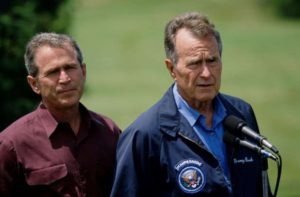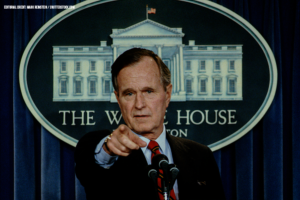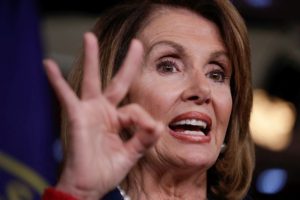Of all the tributes that have poured in after the death of former President George H.W. Bush, the one that gives me significant pause is this one: He is the final member of the Greatest Generation who will serve as president of the United States.
Wow, man! Think about that one for a moment.
The past four presidents have come from the Baby Boom generation: Bill Clinton, George W. Bush, Barack Obama and Donald Trump; Clinton, Bush and Trump all were born in 1946, the year after World War II ended; Obama was born in 1961.
But prior to those men’s election, the nation was led by a number of men who had served during World War II. Jimmy Carter was born in 1924, but didn’t graduate from the U.S. Naval Academy until 1946. The others all served during World War II; many of them saw action during the great conflict.
Gerald Ford, Richard Nixon, Ronald Reagan, Lyndon Johnson, John Kennedy and, of course, Dwight Eisenhower all wore the uniform during World War II. It could be argued that Ike was the greatest among the Greatest Generation, given that he served as Supreme Allied Commander of forces in Europe.
George H.W. Bush also distinguished himself during World War II. He was the youngest naval aviator on active duty. He got shot down over the Pacific Ocean and was plucked from the water by a U.S. submarine.
Why is it a big deal to remember this as we honor President Bush? Because his passing represents the end of an era. I mean there will be no one else ever elected to the nation’s highest office who shares the history of the men I noted already.
The same can be said of Korean War veterans. They, too, have grown old. The Vietnam War generation comprises Americans who are getting long in the tooth as well . . . and yet, I hear that former Secretary of State/U.S. Sen. John Kerry — a Vietnam War combat vet — is pondering whether to run for president in 2020.
President Bush’s death serves as a metaphor of sorts for what the nation is experiencing with regard to the 16 million Americans who helped save the world from tyranny. We’re losing these men and women every hour of every day. I don’t know how many of them are left, but I do know they are in their late 80s and 90s. Time will take their toll.
President Bush’s passing should remind us of the need to appreciate the service others of his generation — the Greatest Generation — gave to the nation they love.








